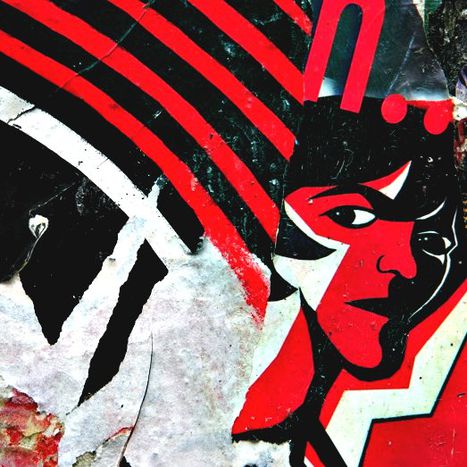
Europe day 2011: Robert Schuman's dream: is it yours?
Published on
After drifting aimlessly for some time, the European union has reached crisis point. It has lost its way and with it popular legitimacy. Anti-Europeanism is now the currency of choice in many EU state
Sixty-one years ago today Robert Schuman made a historic declaration as he called on European nations to share their coal and steel resources as 'the first concrete foundation of a European federation'. Foreign minister of France at the time, Schuman felt that the best way to prevent another European war was to intertwine Europe’s economies and cultivate a European consciousness. His vision yielded significant results, not least the creation of a unique multinational trading and political bloc, now with 27 member states. Since 1985, we mark his vision by celebrating Europe day, every 9th May.
Six decades have passed and the European union has sailed on confidently, with prosperity and peace as its twin figureheads. In essence, its very existence has come to define the political landscape in all of its member states, and, perhaps to an even larger extent, that of the EU’s immediate neighbours. For its member states, the EU offers the security of cooperation and the policy benefits of comparison. For prospective members, the carrot of EU accession has served to tighten the rule of law and, theoretically at least, improve human rights.
The present
Times have changed though. The European ship has hit turbulent water. The financial storm of global capitalism has left it floundering, unable to steady itself. Although it has knocked it off course, its current troubles have much deeper undercurrents and a storm has brewing for some time. After drifting aimlessly for some time, the European Union has reached crisis point. It has lost its way and with it popular legitimacy. Anti-Europeanism is now the currency of choice in many EU states, where even in Finland, traditionally Scandinavia’s most staunchly pro-EU nation, the populist anti-euro True Finn party won 19% of the vote in the recent election.
The popular vision is one of a cosy elite in Brussels, out of touch with the people, implementing a standardisation agenda with technocratic, bureaucratic zeal. To some extent this vision is accurate. The institutions of the European union, hampered by a lack of leadership, have been very slow to grasp the implications of the financial crisis and its key figures were largely left behind by the recent pace of world affairs. The European commission has spectacularly failed to grasp the level of economic insecurity across the continent. It provoked anger in April when it asked for a 5% increase in the EU budget, at a time when most electorates are suffering from national austerity programmes and cutting back on basic public services. To many, the EU already seems like an extravagance that we can ill afford..
More damaging still, the sovereign debt crises in Greece, Ireland and Portugal have placed untold strain on the eurozone and threaten to unravel the single currency itself. The prospect of the return of national currencies, unthinkable a few years ago, now seems increasingly possible. That such a scenario is even mooted, demonstrates how quickly Europeans have lost confidence in one of the EU’s most symbolic projects. The terms of the 1992 maastricht treaty oblige most member states to adopt the euro when they are monetarily in a position to do so. This prospect now seems less and less desirable.
Naysayers across the continent are rushing to the shore, not only to watch the macabre spectacle but to help capsize the boat. Much of what they argue is valid and needs to be said more often. Yes, the EU is hampered by its institutional lethargy and its remote, unaccountable elites. They have tended to overestimate the existence of a common European and ignored the particularities of 27 different national cultures, which many people still hold dear. Often there is too much focus on standardisation, harmonisation and efficiency, to the detriment of the rich tapestry of European life. Yet the recent French and Italian quibbles over Tunisian refugees, which culminated in a serious threat to the integrity of the Schengen borderless travel area, shows the dark side and the strange bedfellows of the anti-European movements. euro-scepticism often goes hand in hand with ugly nationalist rhetoric and draws its strength from a provincial tribalism that seeks to exclude others.
The future
For better or worse, the European union has been this continent’s framework for the latter half of the previous century and has provided a paradigm for moving beyond the horrors of war and towards the modern social democratic states that we all take for granted. Schuman’s vision was much broader than the narrow terms of debate that frame the European Union today. The European project does not begin and end with its institutions, nor with its current crop of lacklustre leaders. What the European union will look like in fifty years hence is still open for discussion. Do we want a purely economic union that enables efficient cross-border trade or do we want something more profound, a real engagement of citizenry beyond frontiers? The European Union needs to belong to its citizens. It is a product of a collective will and imagination and not a collection of treaties, institutions and meetings. We need to radically redefine Europe for the 21st century and put us, the citizens, at its heart. More democracy, more engagement, more transparency and more direction. We owe it to ourselves as Europeans. If the European union sinks, the patchwork of islands left in its wake would be all the weaker and fearful for it. On Europe Day 2011, think about the EU that we want to live in.
Image: (cc) ebergcanada / Evelyn Berg/ Flickr



